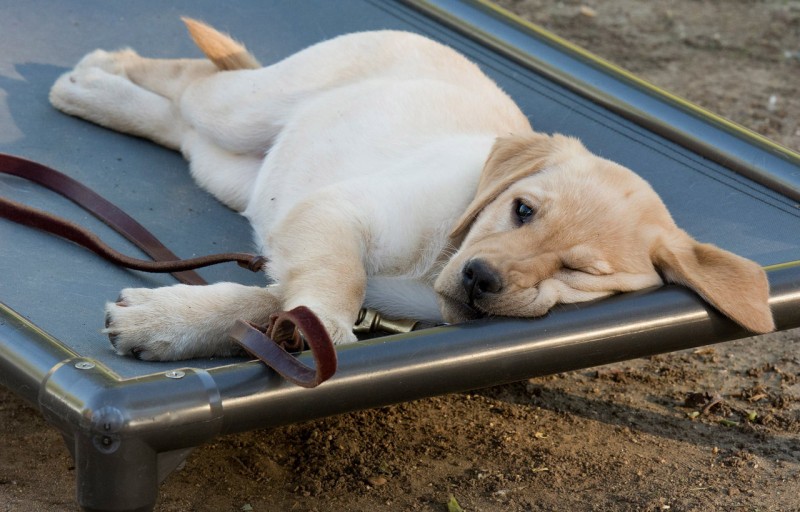Puppy Socialization Do’s and Don’ts
Posted by Jenn on 05/01/2017
It is impossible to overstate how important puppy socialization is. Puppies who are properly socialized during the critical window (8-16 weeks of age) generally grow up to be happy, confident dogs. Puppies who are not properly socialized before 16 weeks, however, turn into anxious, fearful dogs who have trouble handling unfamiliar situations. In fact, a lack of positive interactions with people during this time can permanently damage a dog’s development. Many of these unfortunate dogs never learn to trust humans at all.
If you are lucky enough to have an 8-week-old puppy, congratulations! Starting the socialization process right away will set your puppy up for a long and awesome life.

Puppy Socialization Do’s
The point of socialization is to teach your dog that the world is a safe place and that new things are fun. That means exposing your dog to as much variety as possible.
- Introduce your puppy to lots of different people: old people, young people, people of all races, people wearing funny hats, people with beards, people with umbrellas, people who use walkers or wheelchairs… You get the idea. Try giving yourself a quota of new people for your dog to meet each day. Always make it obvious to your puppy that you think these interactions are fun, and reward her with treats and praise for responding well.
- As soon as your vet has cleared her to be out in public, bring your puppy to lots of different places: busy sidewalks, the beach, pet-friendly stores (especially ones with automatic doors), etc. Let her experience walking on different textures, such as gravel, tile, and carpet. If your house doesn’t have stairs, bring her somewhere that does so she can practice going up and down.
- Use a hairdryer, vacuum, lawnmower, etc. in her presence so she does not grow up to be afraid of these noises. Exposing her to a thunderstorm is also ideal, but obviously this is difficult to engineer!
- Invite people with friendly, well-behaved dogs to your house, and always supervise their interactions. It’s also smart to introduce your dog to a cat if there isn’t a feline “sibling” in the house.
- Handle your puppy a lot. Clip her nails. Give her a bath. If she is comfortable being touched, future trips to the vet or the groomer will be easy.
- Get your puppy a variety of toys (both for playing and for teething) and let her figure out which kinds she likes. Poorly socialized dogs often have no idea what toys are for, which is sad!
Puppy Socialization Don’ts
- Don’t wait longer than 16 weeks to begin introducing your puppy to new things, if you got your puppy before then. (Obviously, you can’t go back in time. If your dog is already past the peak socialization window, do the best you can.)
- Don’t force your puppy to stay in a situation that is clearly making her uncomfortable. This won’t toughen her up – it will reinforce her fear and may even make her distrust you.
- Don’t be overprotective. Let your puppy experience things first and gauge her reaction. She can’t learn anything if her humans are always picking her up. (Well, actually, she can: She can learn that she can’t function without you, which will lead to separation anxiety.)
- Don’t assume your puppy will grow out of a fearful reaction. What she is learning now will become part of her personality, so it’s important to work on these issues sooner rather than later.
- Don’t go too fast. If your puppy has met five people so far in her entire life, bringing her to a gigantic music festival will be way too much.
Don’t go to the dog park right away. Dog parks are not great places for socializing young puppies, because the other dogs may be poorly behaved or carrying disease.
